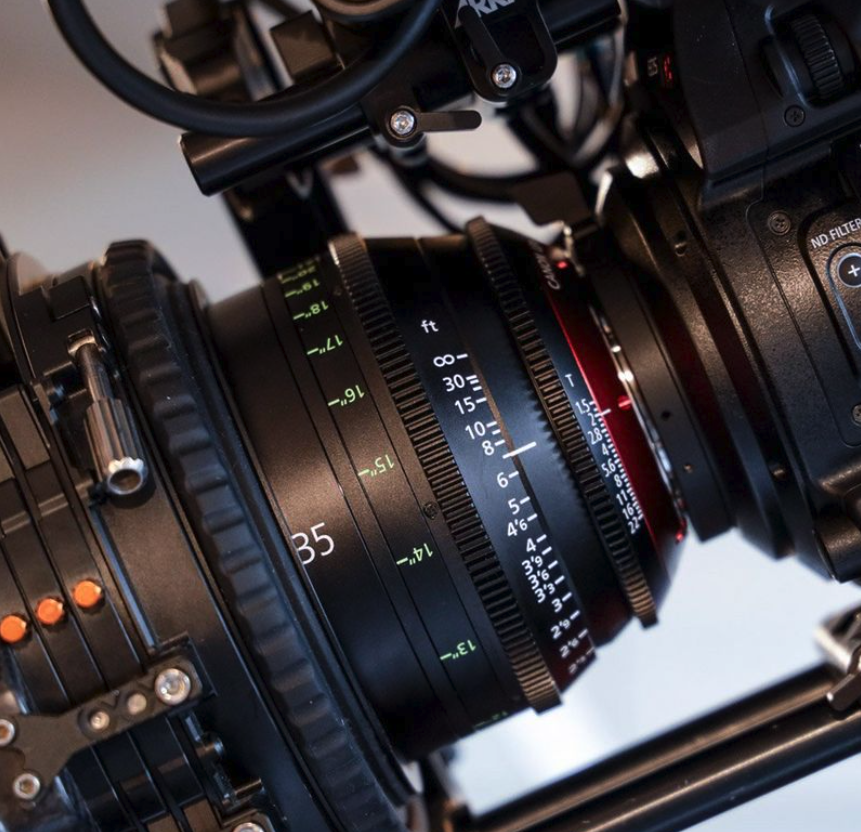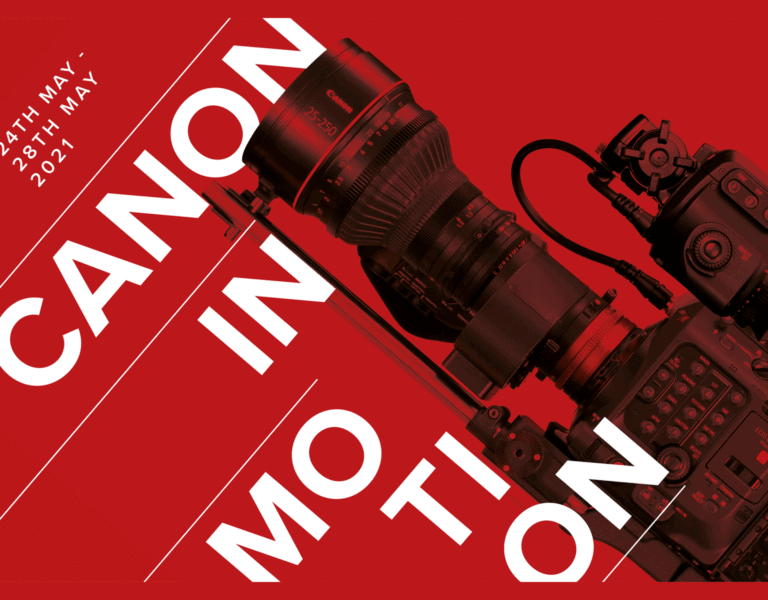Birnam Wood and other considerations
Across The Pond / Mark London Williams

Birnam Wood and other considerations
Across The Pond / Mark London Williams
Finally, this column can be written.
For all the sound and fury made by Trump's loyalists, one thing is now clear. Birnam Wood has, at last, come to Dunsinane castle - whose initials, conveniently enough, are "D.C." It was an outcome, that while it seemed likely from Wednesday morning onward, remained in a kind of arranged limbo for several days, further occasioning delay of the musings here.
And we were already running late, after our last Emmy edition, since it seemed a bit - futile? quixotic? - to run a column on the eve of an election, speculating about what it might mean for our audience here, when the election itself would be held within a handful of days, perhaps hours, of the column going live. So, we waited on the copy, as we have occasionally when other recurring calendar staples, like Cine Gear, NAB, the Oscars and aforementioned Emmys were looming, all of which seem like entirely innocent road markers now, of a time before… well, before all this.
And, while the purview of this column has never been politics per se - there are many far more accomplished writers, working right this minute, who can give you a perspective on what "all of this" really means for us, as it continues to unfold and heads into the new year, and the years to come - but there's also no question that we're reminded in new and unfolding ways of the '70s-era maxim that "the personal is political."
Or, to quote John Muir, "when we try to pick out anything by itself, we find it hitched to everything else in the Universe."
Thus, if the theory holds that further destruction of wildlands leads to the increased spread of once-exotic diseases (for example), and government action (or lack of the same) either mitigates or enhances that spread, then here we are at a moment where destruction of rainforests in Asia and elsewhere, coupled with the results of congealing political conditions in an American election in 2016, have now led to severe impediments on film and TV production - the veritable bread and butter of our work here.
How might the administration of Joe Biden and Kamala Harris impact the US government's response to the Covid pandemic, which has kept you from going to an in-person trade or awards show (never mind a movie theatre - and more about that in a moment) for months?
Well, we're finishing this on the morning that the incoming administration is announcing its new Covid task force, which includes a former Surgeon General from the Obama administration, and numerous other medical authorities, all of which augurs well for an actual Federal response to the pandemic, rather than the current laissez-faire approach of letting the bodies stack up.
This same morning, another of Trump's cabinet secretaries announced that he, too, has tested positive for the virus.
But the swiftness and breadth of how much the incoming administration might accomplish also remains up in the air this morning, since the balance of the US Senate now won't be decided until a couple of columns hence - after the duel Senate run-off elections coming this January in Georgia. So, while much can be done at the Executive branch level, it remains to be seen how much else will be addressed by the Federal government overall, especially if Mitch McConnell hangs on to be the obstructor-in-chief once again. Especially in terms of the stimulus money that will be needed to keep businesses afloat (including many of the smaller ones here in both the conceptual and literal "Hollywood), along with also keeping idled workers under a roof, and able to buy groceries.
This matters, of course, because it will affect how soon anything will return to some vague semblance of what we used to know as "normal."
Certainly, on the production side, studios are working toward that semblance. News also comes that Jurassic World: Dominion - about how even dinosaurs outside the Senate can run amok - has finally wrapped as the first major production to finish during the pandemic.
As Deadline reported about the nearly 100-day shoot, Universal had its own private medical facility to help "manage the entire production's medical requirements," which included oodles of testing, with only about 100 positives out of about 40,000 tests. There were also daily tests, and cast and crew lived in their own "production bubble," similar to the NBA at Disney World, and now the film will continue its considerable posting, presumably with the help of secured fibre optics running many terabytes of information to small, decentralised protocol-savvy locations under the purview of editorial and visual effects.
But the things to keep in mind, as we settle in for what is likely to be a winter of great discontent, in terms of spiking and spreading Covid, are that not every production entity will have these resources - or the ability to stretch their calendar. And further, even when you get your blockbuster or tentpole picture done, what then?
When will you be able to assemble crowds large enough to keep shelling out for tickets to recoup your investments?
Well, among the other breaking news here as we file, is that Pfizer has announced a vaccine that appears, in trials so far, 90 per cent effective against the vaccine. As The New York Times notes, "if the results hold up, that level of protection would put it on par with highly effective childhood vaccines for diseases such as measles. No serious safety concerns have been observed, the company said.
"Pfizer plans to ask the Food and Drug Administration for emergency authorisation of the two-dose vaccine later this month, after it has collected the recommended two months of safety data. By the end of the year it will have manufactured enough doses to immunise 15 to 20 million people, company executives have said."
If the rollout remains effective through 2021, might there come some point when people will feel safe gathering together in movie theatres? Studios are still gambling on the answer.
They keep pulling films, without necessarily committing to an alternative streaming release, hoping to kick this particular can down the road. Disney announced more kicking on its end, pulling two more films originally slated for the cool of Yule time, namely two Fox acquisitions, Death on the Nile, and the Ryan Reynolds, Pleasantville-meets-videogaming vehicle Free Guy.
But, unlike the already pulled Pixar film Soul, which is headed to Disney+, the specific fate of these two now post-holiday offerings remains uncertain. As does so much more. Wonder Woman 1984 is still slated for a Christmas opening, but if Covid spikes as expected, will Warners, which is to say ATT, blink as well?
All of which gets us back to that tapestry that Muir was talking about; If more and more deferred product gets pushed into later release dates, even given a widely trusted and distributed vaccine over the next year or so, then when would new dates, for new films (many of which, unlike the new Jurassic installment, aren't even started, let alone wrapped) even become available?
When does the clogging of the theatrical release pipeline become its own problem, and how will that affect future "green lights", and work? Even if you can shoot in a quarantine bubble at Pinewood, or in an island country like New Zealand.
Meanwhile, here in semi-quarantine, we still have new shows to talk about coming to us on our smaller, at-home screens. And such a voracious need for "content" on the domestic side gives a chance for shows which aren't quite as heavily touted as the "headline offerings" to attract their own share of eyeballs.
One such example was the HBO Max docudrama series Legendary, about various voguing Houses competing against each other for the title of "most legendary." It's "docu" since it is in fact reality TV, but also "drama," because, well, how could the behind-scenes-aspects not be?

Director Rik Reinholdtsen discussed with us why he went with a Canon package for the show, after having gone over it with his DPs, Bob Aumer and Clint Childers "the various camera options available at the time and the unique and specific needs we would be required to film for this production. We decided for the cost and quality, the flexibility of the Canon EOS C700 Full-Frame Cinema Camera and the EOS C500 Mark II was a great option. These cameras allowed us to film in any environment and capture gorgeous imagery. With fifteen stops of dynamic range and filming in log, that provided us with outstanding creative opportunities and maximised our picture during the production process." All of it," he adds, "a high-quality product for a reasonable price."
Added to the cameras were Canon's own Sumire lenses, which, when coupled with "the natural lense artifacts…(helped) provide the perfect combination of how to achieve beautiful cinematic imagery in this new era of electronic digital systems."

A new era indeed. Between the election, the breaking news on the vaccine front, and more, it is likely new on more than the digital system front, even if things won't ever go all the way back to how they were.
As the Jurassic Park tales teach us, even dinosaurs have to learn how to live in a new world.
@Tricksterink, AcrossthePondBC@gmail.com




